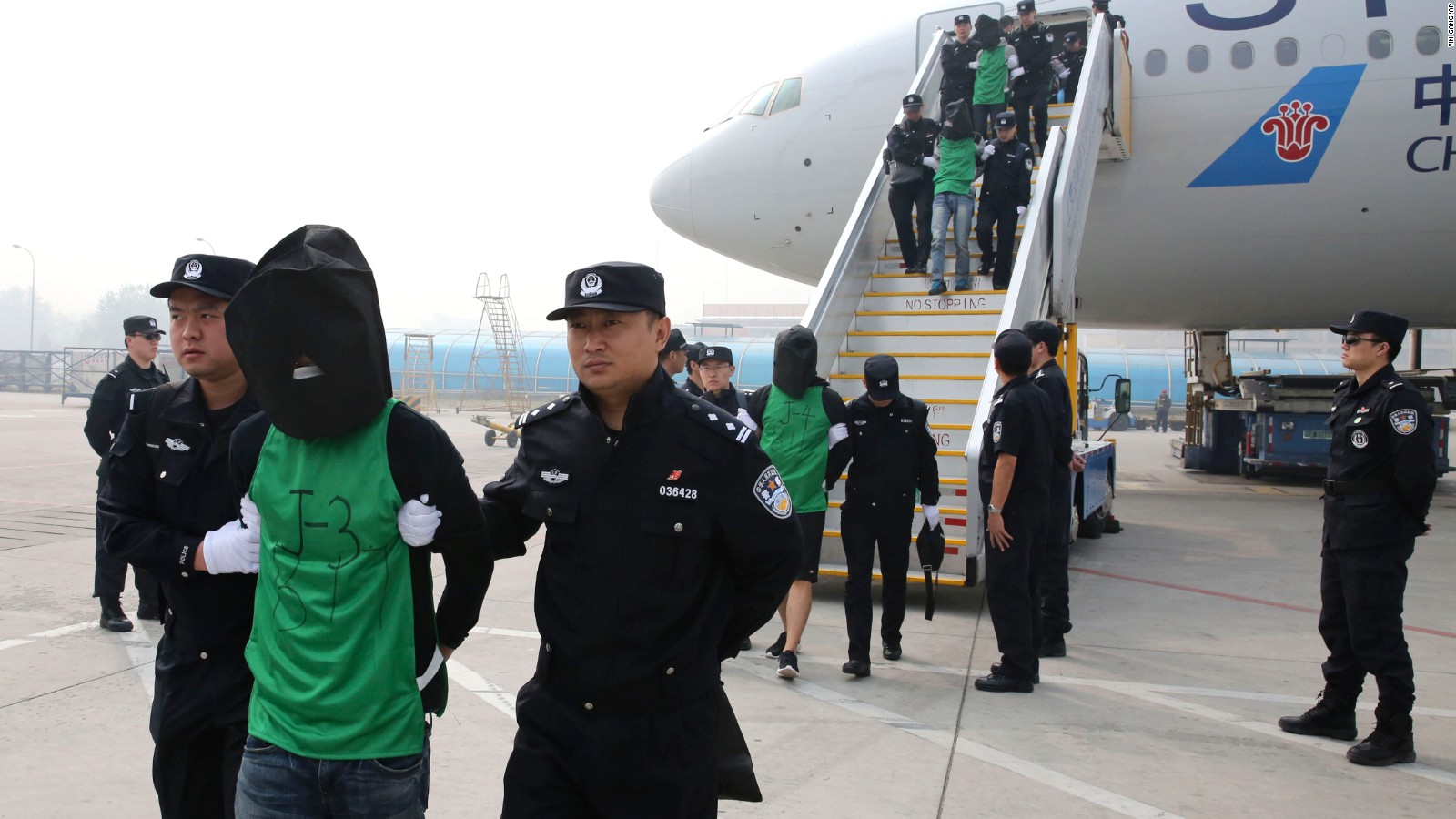Can China get away with abducting people overseas?

Taiwan accuses China of 'extrajudicial abduction' 02:15
Story highlights
- Cole: Beijing "will not hesitate to break agreements or international conventions to further its aims"
- This suggests "no one is safe anymore" from risk of abduction by Chinese agents
- The Kenya crisis will rock the foundations of the cross-straits "status quo"
(CNN)Editor's note:
J. Michael Cole is a Taipei-based senior non-resident fellow with the
University of Nottingham's China Policy Institute and editor-in-chief of
Thinking-Taiwan.com -- which is affiliated with an organization founded by Taiwan President-elect Tsai Ing-wen. The views expressed are his own.
The ongoing crisis over the deportation by Kenyan authorities of 45 Taiwanese nationals to China has sparked consternation in Taipei and accusations of international kidnapping worldwide.
Besides
the fact that the individuals were cleared of all crimes by a Kenyan
court, their extradition to China, ostensibly due to pressure from
Chinese officials, raises essential questions about the future
implications of the "one China" policy in a time of greater Chinese
assertiveness.
China's
extraterritorial reach worldwide is also cause for apprehension among
Taiwanese, Uyghur, Tibetan and Hong Kong activists who now live and
travel under the shadow of possible capture and extradition to China for
any "crimes" as defined by Beijing's intentionally vague National
Security Law.
Coming in the wake of China's alleged kidnapping of five Hong Kong booksellers,
this outrage suggests that nobody is safe anymore and that Beijing will
not hesitate to break agreements or international conventions to
further its aims. In fact, even being a foreign national, as two of the
booksellers were (and one of the Taiwanese workers reportedly is), no
longer confers the kind of protections that are assumed in such
situations.
Although
such action risks being counterproductive in terms of winning the
hearts and minds of the Taiwanese, this is possibly a case where
ideology is driving policy in China, perhaps the result of domestic
developments that are forcing President Xi Jinping's government to adopt
a harder line on Taiwan and other "peripheries."
Given
its economic sway over a number of countries worldwide, and the
apparent reluctance of the international community to push back whenever
it breaks international law, it seems unlikely Beijing will run out of
willing partners to enforce its rigid definition of "one China" anytime
soon.
Fatal blow for cross-strait relations?
The
alleged abduction of the Taiwanese workers casts serious doubt on
Beijing's willingness to maintain a constructive relationship with
Taiwan a little more than a month before a new administration is sworn
in in Taipei.
In Taiwan, the
reaction to what, for all intents and purposes, amounts to the
kidnapping of Taiwanese nationals, has had a rallying impact similar to
that seen when Chou Tzu-yu, a 16-year-old Taiwanese K-Pop singer, was forced to make an ISIS-style video apologizing for displaying the Republic of China's flag in a promotional clip.
Besides
the consternation that has pervaded Taiwanese society upon seeing their
compatriots nabbed by Kenyan police and shoved, black hoods on their
heads, onto a China Southern airplane, politicians from all sides are
now calling into question the eight years of rapprochement under
President Ma Ying-jeou, who steps down on May 20.
The
"status quo" that has served as the foundation of cross-straits ties,
as well as the different interpretations of "one China" that have
provided the necessary flexibility for the two sides to co-exist, now
seem under assault by Beijing.
In
fact, many of the key accomplishments of the "Beijing-friendly" Ma are
now regarded in an entirely new light; rather than instruments of
normalization and reciprocity, it is now difficult not to regard those
successes cynically, as mere tools for Beijing to lock Taiwan ever more
tightly into its embrace.
The
Mainland Affairs Council, the agency in charge of communicating with
Beijing, has been denied access to the 45 Taiwanese and authorities in
Taiwan are being kept largely in the dark.
Moreover,
the handling of the matter demonstrates that the joint crime-fighting
agreement signed between the two sides in 2009 -- the very kind of
agreement that would come into play in such a situation -- is
effectively a dead instrument which Beijing can ignore as it sees fit.
The same conceivably applies to the twenty or so other agreements signed
between the two sides since 2008.
Beijing's
behavior will only succeed in alienating ordinary Taiwanese, among whom
support for unification is at an all-time, single-digit low. For
President-elect Tsai Ing-wen, this incident creates a challenge, as she
will have to continue negotiating with a regime that has no compunction
in breaking the rules and which is keen to extend the reach of its laws
to include Taiwanese citizens, wherever they are.
Editor's note: J.
Michael Cole is a Taipei-based senior non-resident fellow with the
University of Nottingham's China Policy Institute, an associate
researcher with the French Centre for Research on Contemporary China
(CEFC), and editor-in-chief of Thinking-Taiwan.com
— which is affiliated with the Thinking Taiwan Foundation founded by
Taiwan President-elect Tsai Ing-wen. The views expressed are his own.





Comments
Post a Comment